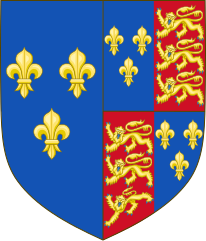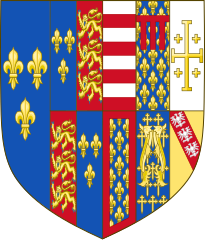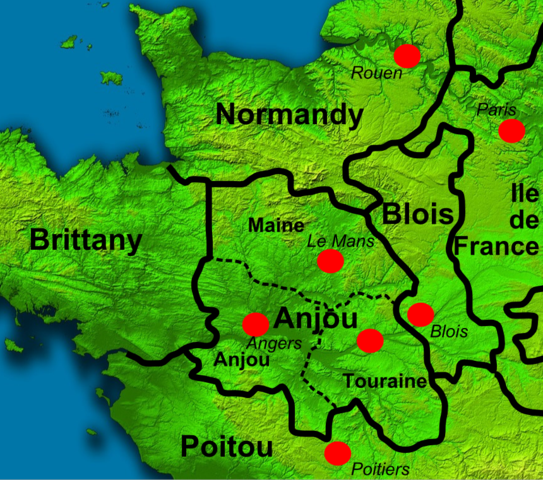- Joined
- Jun 30, 2009
- Messages
- 41,773
- City
- An Iarmhí
- Country
- Ireland




On October 16, 1460 Prince Edward, Duke of York (future King Edward IV) formally claimed the crown of England by right of inheritance. He then submitted to the Lords in Parliament a genealogy showing his descent from King Henry III.
Why had Edward not put forward his claim before?
His claim was through Edward III. Yes, he was descended from Henry III, but further back. Henry IV usurped the throne from his cousin Richard II. Richard was grandson of Edward III by his son the Black Prince. Henry was John Gaunt's son, 3rd child of Edward.
Edward IV didn't lay claim earlier as his claim was weaker. Edward III had 9 kids reach adulthood. Edward, Isabelle, Joan, Lionel and John were his eldest. His sixth child to live Edmund was Duke of York. Edmund's youngest son Richard was grandfather of Edward IV. Simply put, the male line of the 5th child (usurper or not) had a better claim than the 6th child. He got a small boost as his mother Cecily was a granddaughter of Gaunt but female line had a weaker claim.
The Yorks made their claim through the female line. John and Edmund's older brother Lionel only had 1 child,Philipa. Her granddaughter Anne married Richard of York, Edmund's son, uniting the 2 lines. But a senior male line, Gaunt, had a stronger claim.
As long as Henry VI was sane, his claim was stronger. Once he was mad, Edward IV convinced the court to ignore Henry's son and move on.
That is how we get the Tudor claim. Henry's mother was descended from John Gaunt, her father was John's grandson. If Henry VI and his son were unable to reign, the Gaunts still had best claim. Her great-grandfather was Henry IV's younger brother. By marrying the York heir, Henry VII united Lionel, John and Edmund's lines.
They got more into eliminating rivals, Henry VIII certainly. The Poles a prime example.Margaret Pole was the niece of Edward IV by his brother George. Her and her eldest son were beheaded and another exiled. Early death spared Arthur. Reginald was an exiled priest, returned to favor under Mary I. A grandson also died in the tower. Other family like Edward Neville were as well.
I have always been interested in British Royalty but not prior to King George III. However, I had seen the name "Plantagenet" on the British Royal forum several times. When the daughter of a co-worker offered to let me read her book by Dan Jones, "The Plantagenets", I though it would be interesting because I had wondered who they were. Well, I can't get enough of this book!!! It is so interesting!! Now I want to keep reading about these earlier royal families of Britain. Could anyone tell me the all the families who came before and all the families after the Plantagenets and recommend some books on them? I know the Normans came before the Plantagenets and the Tudors came after (I think). I plan to read the next book by Dan Jones on the fall of the Plantagenets and the rise of the Tudors. Also, there were the minor families Blois and Anjou before the Plantagenets, so I guess I am interested in the major ruling families. However, I would appreciate any suggestions anyone could give me. Thanks.

duchessrachel-I know exactly how you feel regarding your new found interest in dynasties prior to George III.
The Plantagenets are one of my interests as well. When my family and I visited London in 2017, I was on the hunt for Plantagenet related sites ie: Tower of London, St George's Chapel, Westminster Abbey etc..
One little thrill was finding Edward IV and Elizabeth Woodville's grave at St. George's Chapel.?
The Counts of Blois were related to both the French & English royal houses via Princess Alix de France ,daughter of Eleanor of Aquitaine and her 1st husband Louis VIII of France.
Alix married Theobald V, Count of Blois in 1164.
Henry II of Englands father was Geoffrey Plantagenet, Count of Anjou ,Touraine, and Maine all of which Henry acquired following his fathers death in 1151.
Northern France 1160

